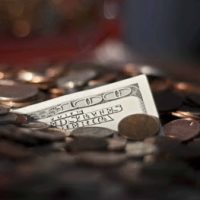Want to Avoid Debt? Build an Emergency Fund

Many consumers have no intention of ever falling into debt. They don’t use credit cards irresponsibly, and they don’t live luxurious lifestyles beyond their means. Nevertheless, millions of people will fall into debt whenever an emergency strikes. To avoid this situation, you need to build up an emergency fund.
Unexpected Expenses
The purpose of an emergency fund isn’t to pay for a cruise or to purchase a new flat screen TV. Instead, it covers those emergencies that you couldn’t have anticipated, such as:
- Medical expenses associated with an illness
- Loss of income associated with an illness
- Job loss
- Emergency car repairs
Of these, job loss is perhaps the scariest because you do not know how long it will be before you find a new job. Nevertheless, bills continue to pour in: rent, mortgage, health insurance, daycare, etc. The purpose of the emergency fund is to tide you over so that you don’t need to use credit cards or take out a personal loan.
How Large Should Your Emergency Fund Be?
Ideally, you want a fund large enough so that you never need to tap credit to cover expenses. Some financial experts have recommended three to six months of expenses, whereas others began to recommend up to 12 months of expenses during the Great Recession. A lot depends on your own comfort level and the work that you do. For example, if you work in a job that fluctuates a lot along with the overall economy, then you might want to save more than if you work in an industry that doesn’t shed jobs during an economic slowdown.
Regardless of the ultimate size of your emergency fund, you need to start small. Put something away. Go to a bank where you do not do your regular banking and open a savings account. You can deposit money into it.
Ways to Save
Building up an emergency fund is never easy. You might already be feeling financial distress right now. Nevertheless, put something away every pay period–$5, $10, whatever you can afford. Then try to build up from there.
One way to save is to look for expenses you can cut. Few people can lower their rent or mortgage, or even their car payment or school expenses. Nevertheless, you can easily save by cooking more meals at home instead of eating out. Even brewing your own coffee at home in the morning can save $500 or more in a year. Instead of paying for a gym membership you never use, go for runs and walks outside or do basic exercises around the home. Whatever money you save, remember not to spend. Instead, funnell all extra funds to your emergency fund and remember not to touch it!
In Financial Straits? Talk to a Bankruptcy Lawyer in Plantation, Florida
When debt is unavoidable, you need caring legal guidance about your options. If you cannot pay your bills or are worried about losing your home, contact one of the Plantation bankruptcy attorneys at Nowack & Olson today. Initial consultations are free.
Resource:
investor.vanguard.com/emergency-fund/amount
